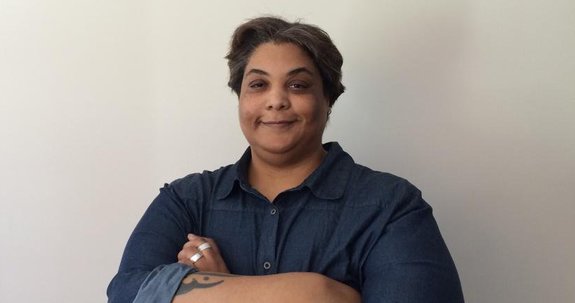
Last week on October 25th, an excited crowd came together in the Wisconsin Room at the Student Union to see author, Roxane Gay, speak in conversation with UWM’s Amber Tucker.
Within our cultural moment of the #MeToo movement and larger national consideration of bodily autonomy, Gay’s talk felt especially urgent and powerful. In Gay’s initial conversation with Tucker, Gay touched upon recurring themes within her writing. I was most struck by her discussion of what it means to be a public figure speaking about their experience of sexual violence. I was reminded of the importance of “the personal is political,” which until recent time had felt trite, or lost its meaning. “Everything I do is feminist,” Gay told the crowd, reiterating that women sharing their stories of sexual violence is in and of itself a political act. However, Gay was quick to the note that some of the danger of the #MeToo movement is in forcing people to prematurely talk about their trauma that they are not ready to be public about and that the emotional labor has been primarily placed upon women – going against the feminist ethos of what #MeToo should theoretically stand for.
Gay offered practical advice for what it means to share one’s personal story of trauma as well. When asked how she responds to people sharing their stories with her and how this can be potentially overwhelming, she offered the statement of, “I already carry my own trauma, I can’t carry yours.” Gay also discussed how ideas of being “survivor” and “victim” differ and are very individual; the process of healing might never be resolved. Can one ever be fully healed from trauma? I appreciated Gay’s sentiment that she doesn’t believe in forgiveness and that rage helps her heal. There’s a cultural tendency towards moving on and purporting that forgiveness is necessary in order to heal. But, trauma stays with us forever and Gay suggested that trauma can be a life-long process. Gay herself said she is as healed as she ever going to be, which is not 100% healed.
I left inspired in my own artistic practice, which investigates the personal (particularly the femme experience). I also left wondering about the greater implications for the #MeToo movement. How can we be sensitive to the person? As Gay says, experience and healing are so individual, yet the #MeToo movement has become a collective experience. How can we can capitalize on the purpose of the #MeToo movement without sacrificing self-care and individual healing?